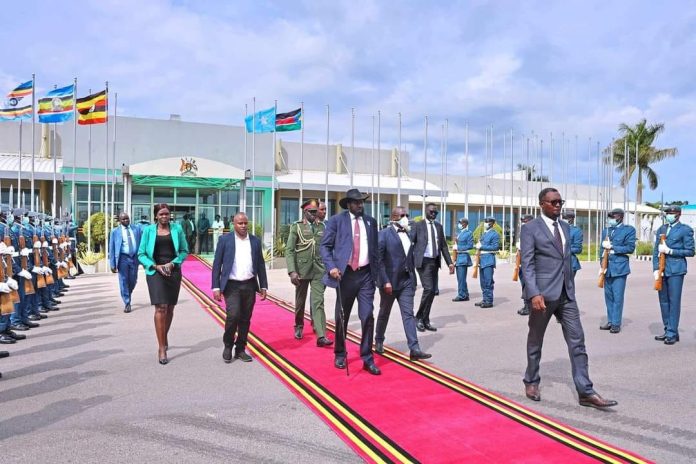NAIROBI (KAAB TV) – South Sudan faces significant hurdles in implementing the 2018 peace agreement, attributing the setbacks to a lack of political will.
The delay in transitional justice, particularly the establishment of the Hybrid Court to address crimes against humanity since 2013, remains a pressing concern.
Observers link the success of the December 2024 elections to the effective execution of the Revitalised Peace Agreement.
General Charles Gituai, Chairman of the Joint Monitoring and Evaluation Commission (JMEC), emphasizes the need for unifying forces, crafting a permanent constitution, and ensuring free, fair, and credible elections.
Although the National Elections Commission (NEC) and the National Constitutional Review Commission have been reconstituted, key bills such as the National Security Service Bill and others await enactment.
The restructuring of national-level commissions and institutions, essential for independence and accountability, is pending, with concerns about funding and a lack of clarity on implementation.
Edmund Yakani, Executive Director of the Community Empowerment for Progress Organisation, applauds the swearing-in of commissions but expresses worries about funding and urges swift action in January.
The 35 percent minimum women’s participation in various bodies, including the Land Commission, Fiscal and Financial Allocation Monitoring Commission, and Anti-Corruption Commission, remains unfulfilled.
Security sector reforms, crucial for peaceful elections, face delays. President Salva Kiir’s solicitation for military defections from potential opponents raises concerns, with General Gituai noting the counterproductive nature of such actions.
Defections, including those of General Ochan, General Lokujo, and General Nando, have led to civilian casualties, displacement, and economic losses.
The Judicial Reform Committee’s work, aimed at judicial reforms and the establishment of an independent Constitutional Court, is stalled due to funding issues.
The enactment of a new constitution is paramount, but delays in the National Constitutional Review Commission and the Preparatory Sub-Committee for the National Constitutional Conference impede progress.
South Sudan, operating under the 2011 provisional constitution, faces a crucial juncture as it strives to navigate these challenges during the Transitional Period.


